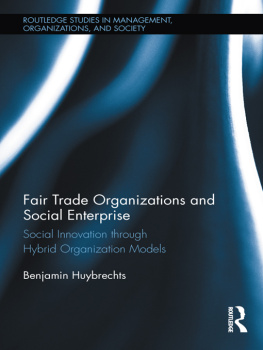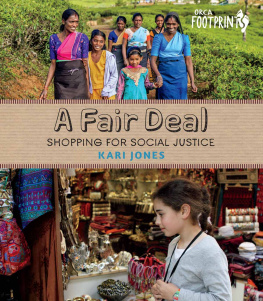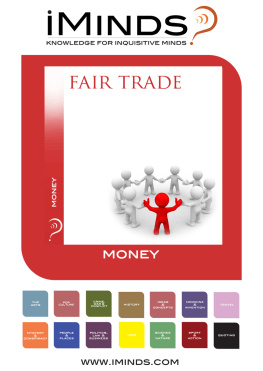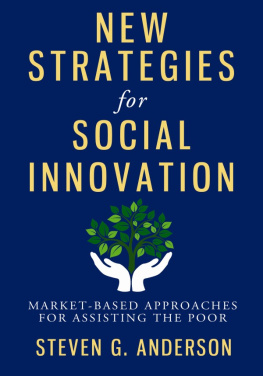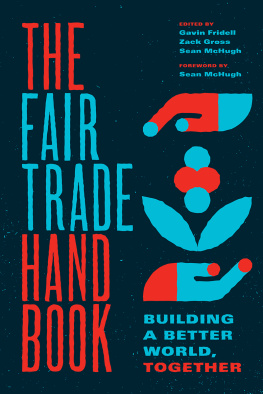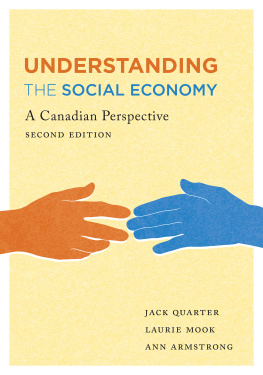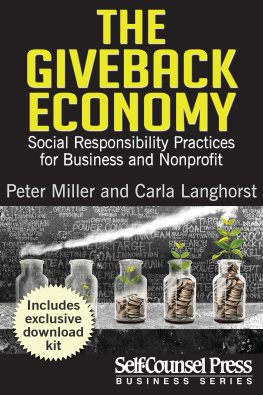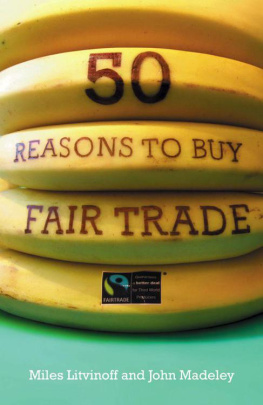Benjamin Huybrechts - Fair Trade Organizations and Social Enterprise: Social Innovation through Hybrid Organization Models
Here you can read online Benjamin Huybrechts - Fair Trade Organizations and Social Enterprise: Social Innovation through Hybrid Organization Models full text of the book (entire story) in english for free. Download pdf and epub, get meaning, cover and reviews about this ebook. year: 2012, publisher: Routledge, genre: Politics. Description of the work, (preface) as well as reviews are available. Best literature library LitArk.com created for fans of good reading and offers a wide selection of genres:
Romance novel
Science fiction
Adventure
Detective
Science
History
Home and family
Prose
Art
Politics
Computer
Non-fiction
Religion
Business
Children
Humor
Choose a favorite category and find really read worthwhile books. Enjoy immersion in the world of imagination, feel the emotions of the characters or learn something new for yourself, make an fascinating discovery.
- Book:Fair Trade Organizations and Social Enterprise: Social Innovation through Hybrid Organization Models
- Author:
- Publisher:Routledge
- Genre:
- Year:2012
- Rating:3 / 5
- Favourites:Add to favourites
- Your mark:
Fair Trade Organizations and Social Enterprise: Social Innovation through Hybrid Organization Models: summary, description and annotation
We offer to read an annotation, description, summary or preface (depends on what the author of the book "Fair Trade Organizations and Social Enterprise: Social Innovation through Hybrid Organization Models" wrote himself). If you haven't found the necessary information about the book — write in the comments, we will try to find it.
For several decades, social enterprises have been pioneers in the conception and implementation of a pathbreaking social innovation: Fair Trade (FT). Fair Trade Social Enterprises have created a movement which has challenged mainstream trading practices and offered development opportunities for disadvantaged producer groups in the South. Starting from a niche market aimed at convinced customers, FT has expanded and entered mainstream retailing outlets, growing in visibility and market share, while simultaneously experiencing diversification of its organization models. While pioneer Fair Trade Social Enterprises in the early years were largely nonprofit organizations relying on voluntary work, they have become increasingly diversified in terms of legal forms, governance models and organizational practices. These diversified models seem to reflect the hybrid nature of FT itself, through different ways of combining a commercial activity (trading of FT products), a social mission (support to producers), and an explicit or implicit political message (often expressed through education and advocacy).
Based on the study of Fair Trade Social Enterprises across Europe, this book builds a typology of organization models for FT. Author Benjamin Huybrechts further examines how the different organization models combine the economic, social, and political dimensions of FT, and how they manage the possible tensions between these dimensions. Fair Trade Organizations and Social Enterprise proposes a range of theoretical approaches to interpret the diversity of Fair Trade Social Enterprises and offers concrete avenues for managing social enterprises and hybrid organizations in general.
Benjamin Huybrechts: author's other books
Who wrote Fair Trade Organizations and Social Enterprise: Social Innovation through Hybrid Organization Models? Find out the surname, the name of the author of the book and a list of all author's works by series.

